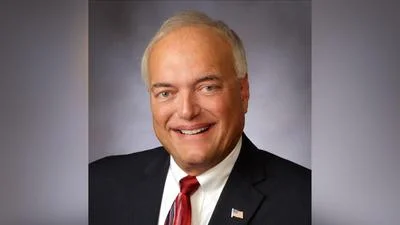MOUNT VERNON – At Knox Community Hospital (KCH), there have been huge advances in the cardiology program in recent years; Stephanie Campbell, the hospital’s cardiovascular patient navigator, told the Mount Vernon News.
“We have had instances of patients who have heart attacks in Fredericktown that are diagnosed in the field with electrocardiograms,” she said. “The EKG has been transmitted by cellular to the emergency room doctor but also the on-call cardiologist.”
In some cases, the cardiologist reaches the hospital before the patient arrives.
“The patient is rolled straight to the emergency room, is stented and in the intensive care unit recovering in two hours,” Campbell said. In another 24–48 hours, the patient could be on their way home from the hospital.
The outcomes are equally remarkable for patients with heart blockages, she noted. A tiny tube, called a stent, is inserted to open the blocked arteries.
“If we do that at 10 in the morning, and the stent was inserted through your wrist, the doctor could decide to send you home in four hours,” Campbell said.
Knox Community Hospital offers a full range of treatment for adult cardiovascular conditions such as atrial fibrillation, pulmonary artery disease and heart failure.
“We do stress testing; we can do vascular imaging from the top of your head to your toes,” Campbell said. “We can stent everything from your head to your toes. We do not do bypass surgery here.”
Other procedures at KCH include vascular surgery and aortic aneurysm repairs.
The hospital’s vascular program in particular can have dramatic results, Campbell said.
“We re-vascularize patients,” she said. “We take them from the brink of losing their toes or the entire foot, and we get them to where that is healed and they are walking again. It’s amazing to see our patients in follow-up that have gone from being wheelchair-bound to walking in six months.”
The best outcome, of course, is never to need surgery in the first place, Campbell commented. Exercise and diet can help.
“A sedentary lifestyle is the worst thing that we do to ourselves,” she said. “It’s important to be active. Even if you’re starting with five minutes a day, it does make a difference.”
It’s crucial to keep blood pressure and diabetes under control, Campbell said.
“Regular checkups with your doctor are important, of course,” she said. “Because of the COVID-19 pandemic, we’ve unfortunately had patients who have foregone medical treatment because they are afraid of exposure to the virus. What ends up happening is that the patients who are coming into the hospital are much sicker and more difficult to treat. It’s much better to have it checked out.”
Patients can either be referred to Knox Community Hospital by their primary care physician or they can schedule an appointment with the hospital directly.
“Either way is completely acceptable,” Campbell said.







